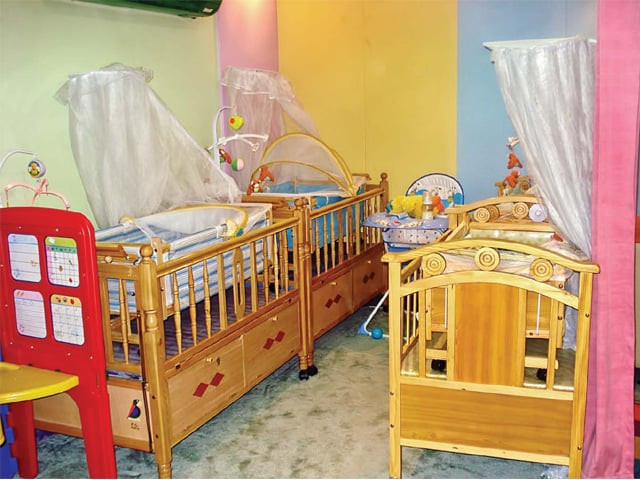Working mothers: Away from home, not from the baby
Many have begun to open daycare centres at the office for their employees’ children.

Working mothers: Away from home, not from the baby
Six months into this routine, Nazish quit her job. It wasn’t just that she was spending several hours on the road every day, and spending thousands of rupees each month on fuel. She was not getting enough time with her daughter.
With growing numbers of women entering the workforce in Pakistan, stories like Nazia’s are becoming more common. “At least once an hour, while at the office, I start to think about what my little girl is doing,” says Zareen Afnan, a banker.
She hired a maid to look after her three-year-old daughter. “I worry if the maid is serving her food, or supervising her carefully while she plays. At five, I just can’t wait to leave work,” Zareen says.
So what should an employer do to put wandering minds back to work? Many have begun to open daycare centres at the office for their employees’ children. They are finding that when the young mothers on their payroll are less distracted by worries about their kids, they become better workers.
“We feel that bringing the babies to daycare at work provides greater peace of mind to the parents and in the end results in improved productivity,” says Affan Haider, manager for corporate communications and responsibility at Telenor. “It also enables mothers to continue their careers after their maternity leave.”
Maryum Khalid says she was ready to quit Telenor, where she has been working four years, because of her young daughter. “I deleted the resignation letter off my computer when the daycare was launched earlier this year,” she says, reaching into a high-end cot to pick up her baby girl in the neat and colourful room that serves as the Telenor daycare centre.
There is just one other child in the Telenor daycare centre. Nine-month-old Shauvan, playing nearby, brightens up when he sees his mother enter the room. “Mommy was away for so long, no?” Tabitta Shahbaz coos as she picks him up and kisses him.
Abida Kamran is in charge of the daycare centre recently opened at Services Hospital. She says the 35 children in regular attendance, mostly aged between three months and a year, are fed, bathed, lulled to sleep and generally taken care of for Rs300 a month. “That’s almost free!” she exclaims. As she brushes a young girl’s hair, some children watch the Cartoon Network on television, some snooze and some cry.
Paediatricians and psychologists say that the primary mother-child bond develops in the first few years after birth. For a healthy relationship, the baby and the mother need to spend time together, especially during the day. Childcare in the workplace allows working mothers to spend this quality time with their kids.
Nazish recently joined Beaconhouse as a teacher and every day, for a few minutes between classes, she makes sure to check in on little Aaina at the school’s daycare centre.
Published in The Express Tribune, December 6th, 2010.



















COMMENTS
Comments are moderated and generally will be posted if they are on-topic and not abusive.
For more information, please see our Comments FAQ